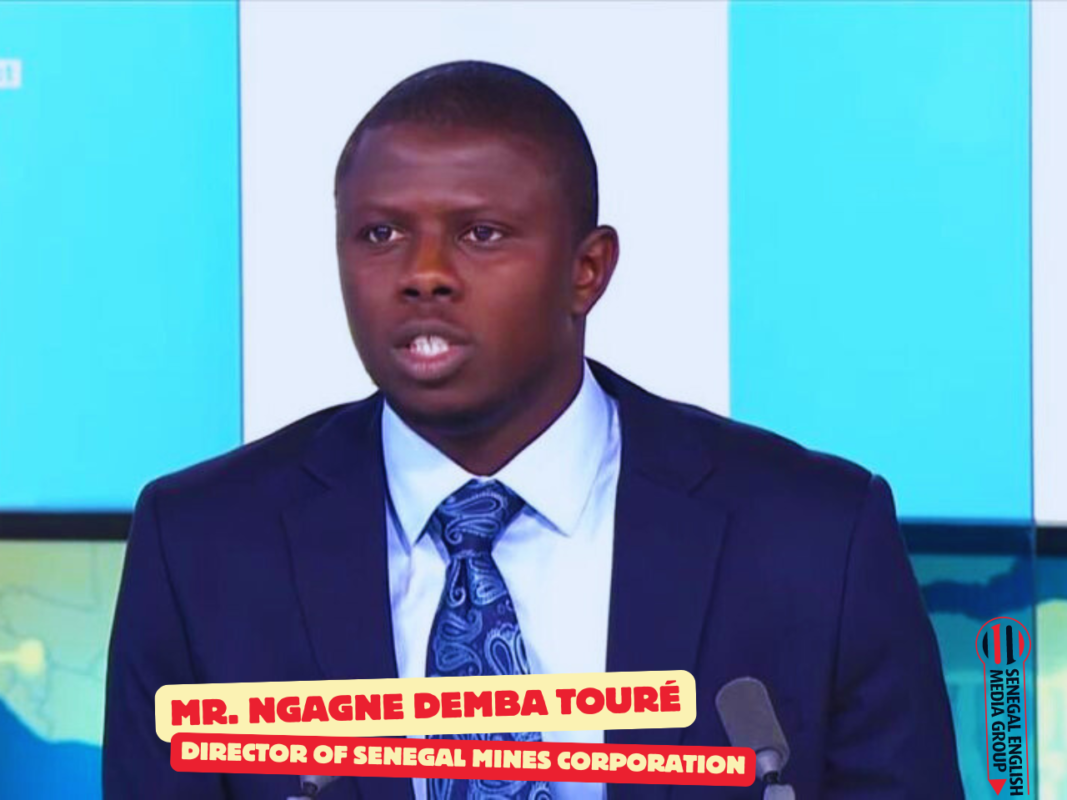
As newly appointed Director of the Senegal Mines Corporation (Société des Mines du Sénégal – Somisen SA.), Ngagne Demba Touré has put forward a compelling initiative: to place representatives from the corporation on the boards of all mining companies operating in Senegal. This move is not just strategic but essential for the sustainable development of Senegal’s rich mineral resources.
Upon taking office, Touré observed a glaring deficiency—Senegal Mines Corporation had no representation in the decision-making processes of these powerful mining entities. Understanding the gravity of this oversight, he promptly notified the Minister of Mines, Gas, and Oil, who sanctioned an assertive plan. Letters were dispatched to both foreign and local companies, signaling the intention to embed corporate representatives into their boardrooms. However, the response has been tepid, with only about 50% of the companies responding to this call.
This initiative by Touré and the subsequent lukewarm reception prompt a deeper examination of its implications and potential benefits for all stakeholders involved.
Ensuring Accountability and Sustainability
First and foremost, placing representatives from the Senegal Mines Corporation on the boards of mining companies ensures that the interests and welfare of the Senegalese people are directly considered in corporate decisions. Mining has long been a double-edged sword: a source of immense wealth but also of environmental degradation and social unrest. By having a seat at the table, Senegal can exert influence to steer these companies towards more sustainable practices, ensuring that the environmental and social impact of mining activities is minimized.
Enhancing Transparency and Protecting National Interests
Representation also introduces a layer of transparency that is often missing in the mining sector. With vested interests from both local and foreign companies, there is always a risk of clandestine activities and exploitation. A representative from Senegal Mines Corporation can act as a watchdog, ensuring that these companies adhere to local laws, ethical practices, and sustainable policies. This transparency is crucial not just for protecting national interests but also for building trust with local communities who are directly affected by mining operations.
Facilitating Better Resource Management
It’s also about resource management. Having corporation representatives on these boards means better coordination and alignment of company policies with national development goals. This can lead to more efficient and effective use of the country’s mineral resources, maximizing economic benefits while ensuring long-term sustainability.
Addressing Company Concerns
The fact that only 50% of companies have responded reveals an underlying hesitation. Some companies might fear that incorporating a government representative could compromise their autonomy or lead to bureaucratic inefficiencies. While these concerns are valid, they should not overshadow the mutual benefits such collaboration can bring.
Touré and his team need to engage in dialogue with these companies, addressing their concerns openly and transparently. It might also be beneficial to organize workshops and seminars to illustrate the positive impact such representatives can have, not just for the country, but for the companies themselves. Enhanced oversight can lead to better compliance, fewer conflicts, and ultimately a more stable and predictable business environment.
Government’s Role
Here, the government’s role is crucial. By supporting this initiative, the government can reinforce the importance of corporate governance and ensure broader compliance. This might mean mandating representation through legislative measures if necessary, to ensure that no mining company can operate in isolation from national interests.
Conclusion
Ngagne Demba Touré’s initiative is a pivotal step towards integrating national oversight into the operations of mining companies in Senegal. It represents a shift towards more responsible, transparent, and sustainable mining practices. While the journey might encounter resistance and hurdles, the long-term benefits far outweigh the challenges. By ensuring that the voices of Senegal and its people are represented in the boardrooms of these powerful entities, we can safeguard our resources for future generations and build a mining sector that truly benefits all.
The onus now lies on the Senegal Mines Corporation and the government to persist in their efforts, engaging and educating the companies on the value of this initiative. In doing so, we can herald a new era of mining in Senegal, defined by collaboration, transparency, and mutual growth.


